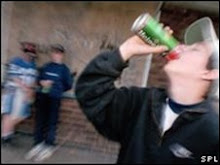After the temperance movement began to extinguish, many groups continued to advocate for strict regulation of the production and sale of alcohol. In response, the Ontario government created a monopolized system of sales. This means that a select number of retailers account for all of the sales of alcohol throughout the province and hold great power in the regulation of alcohol consumption (Marquis, 2004).
The Liquor Control Board of Ontario (LCBO) was created in 1927 to control the sale of alcohol to both individuals and restaurants/bars. The LCBO is a Crown corporation which means that it is a state-owned enterprise. The Retail Breweries Inc. (now known as The Beer Store) was also created in 1927 which is a privately-owned chain of retail stores which account for almost all beer sales in Ontario. These corporations currently operate under the Alcohol and Gaming Regulation and Public Protection Act of 1996 (http://www.agco.on.ca/en/h.home.html).
According to Marquis (2004), this framework created over 80 years ago is still present in today’s alcohol sales system. While the actual stores have become much more customer friendly and have extended hours of operation, this system continues to have great control over the sale and consumption of alcohol. There has been a push to privatize the sale of alcohol in Ontario following the paths of other provinces. However, groups such as the Canadian Association for Mental Health stresses that our monopolized system is crucial in preventing alcohol-related harm (Canadian Association for Mental Health, 2004). It also generates significant government revenue.
This system relates directly to the sale of alcohol to youth. The LCBO stresses a strong sense of social responsibility and is very much involved in many public campaigns such as Mothers Against Drunk Driving. The official website (www.lcbo.com) lists their key values and objectives listed. The first four on the list all focus on preventing alcohol sales to youth and educating youth about alcohol-related health risks. It appears that the legal drinking age for youth is significantly influenced by this policy of monopolized alcohol sales and these strict regulations reflect the social and governmental attitudes towards youth alcohol consumption.
Tuesday, October 14, 2008
Subscribe to:
Post Comments (Atom)


4 comments:
I agree with keeping Ontario privatized! Provinces like Alberta are way too lenient in the way they sell alcohol. It makes it too easy to stop at the corner store with longer hours and pick up additional alcohol. Drinking risks are greatly increased in these cases.
The other side to this argument is that letting small, private businesses sell alcohol could increase revenue for local economies. Do you think there is any way we could reach common ground in between? Could private businesses sell alcohol under the close watch of the government to monitor the sale of alcohol to youth? Is it worth making a change so that small businesses could benefit?
I think that making the availability of alcohol public may be a disaster as it opens the doors for unregulated consumption. Think about the repercussions of that on drinking and driving and illicit behaviors....
This point is very true...
However, research shows that the less control there is on alcohol, the less rebellious and elicit behaviors are evident in terms of alcohol consumption
This is something to definitely ponder...
Post a Comment